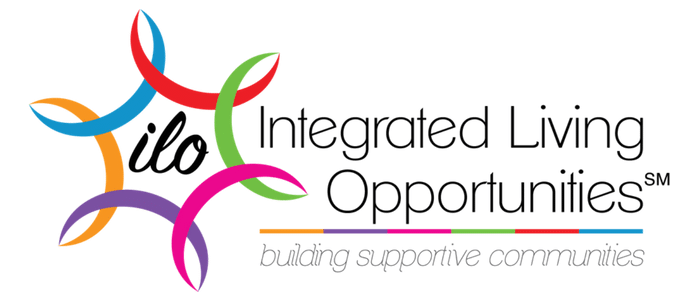October 27, 2016
At Integrated Living Opportunities (ILO), we are committed to helping our participating families and self-advocates build intentional, integrated, inclusive communities for adults with disabilities. As a part of this process, we strive to build these communities according to the hopes and dreams of our self-advocates, while prioritizing access to transportation, travel, shopping and opportunities for socialization and recreation – all the ingredients for a fulfilling life.
We also recognize that an important part of life for adults with disabilities is employment; we encourage our self-advocates and their networks of support to consider possible employment as a part of his or her independent living goal. With that goal in mind, this post will be devoted to an important step on the road to employment: post-secondary education and preparation.
Post-Secondary Education – Is it Necessary?
Employment is an important aspect of a well-rounded, independent life. In addition, parents of individuals with disabilities often wonder how their child will be financially supported once they reach adulthood. While there are many financial planning options (ABLE savings, government benefits, special needs trusts, etc.) to assist with future planning, parents can help their child help him or herself by preparing and advocating for employment. As a 2015 study suggests, the best way to ensure that your child with special needs is employable (and able to acquire a position that he/she enjoys and is suited for) is to help them enroll in and complete a post-secondary program.
The study, Post Secondary Inclusion for Individuals with an Intellectual Disability and its Effects on Employment, examined graduates from two types of post-secondary programs for individuals with disabilities. These individuals were surveyed regarding employment outcomes and other personal developments. The results of these surveys were compared with each other, as well as with a comparison group of individuals with disabilities that did not participate in post-secondary education.
The study found that there were significant positive employment outcomes for individuals with intellectual disabilities who attend post-secondary programs compared to those who did not attend those programs. More specifically, 90% of the individuals who attended a post-secondary program achieved employment. By comparison, only 50-60% of individuals who did not attend a post-secondary program achieved employment.
Post-Secondary Resources for Adults with Disabilities
With the help of M&L Special Needs Planning, LLC, we have compiled a list of resources that will help you and your family member with disabilities with the process of preparing for college, choosing the right college, preparing to transition to independent living, and figuring out how to pay for education. In addition, the resources also contain guidelines that will help you locate resources that can assist and support college students with disabilities (i.e. longer exam times, accessibility issues, funding grants, etc.) and ensure that each individual has equal access to the opportunities that exist in the post-secondary community.
Think College!
Think College is a national organization dedicated to developing, expanding, and improving inclusive higher education options for people with an intellectual disability. With a commitment to equity and excellence, Think College supports evidence-based and student-centered research and practice by generating and sharing knowledge, guiding institutional change, informing public policy, and engaging with students, professionals, and families.
On-Campus Outreach (OCO)
Campus Outreach is a website which supports transition best practices in post-secondary settings for students with significant disabilities. It contains articles, fact sheets, on-line training modules, and contacts for programs in Maryland. There is also a resource section that contains information on special education services for students with disabilities.
Going to College
The Going to College website contains information about living college life with a disability. It’s designed for high school students and provides video clips, activities and additional resources that can help you get a head start on planning for college.
2016 College Resources for Students with Special Needs
The 2016 College Resources for Students with Special Needs is a user-friendly guide (written and published by bestschools.com) that explores rights and protection provided by law, the many different education opportunities, as well as in-depth grants and scholarship programs designed specifically to support higher education. This guide is intended to answer common questions that individuals with special needs may have about college and make it easier for them to leverage the educational benefits they have already earned.
Heath Resource Centre of George Washington University
The Heath Resource Centre of George Washington University is web-based clearinghouse that serves as an information exchange of educational resources, support services, and opportunities. The HEATH Resource Centre gathers, develops and disseminates information in the form of resource papers, fact sheets, website directories, newsletters, and resource materials. HEATH Resource Centre is a collaborative effort among a network of professionals in the areas of disability, counseling, transition and post-secondary education.
Would You Like More Information?
Thank you for taking the time to visit our website and read our blog. We hope that it contains important information that you need to help your family member begin his or her quest for post-secondary education and/or employment. At the very least, we hope that it has inspired discussion.
If you would like more information on post-secondary education options for individuals with disabilities, we highly encourage you to visit M&L Special Needs Planning, LLC’s website. M&L is a special need planning company founded and owned by ILO president, founder, and C.E.O. Maedi Tanham Carney, CFP, CWIC. The M&L website has a number of different financial and life planning resources designed to help families with special needs prepare for the future including an entire section on post-secondary education, special education, grants, scholarships, and more. Carney and her staff also deliver an excellent presentation titled Transition Planning & a Discussion of Post-Secondary Options that you may wish to attend. Please contact M&L for more information.
